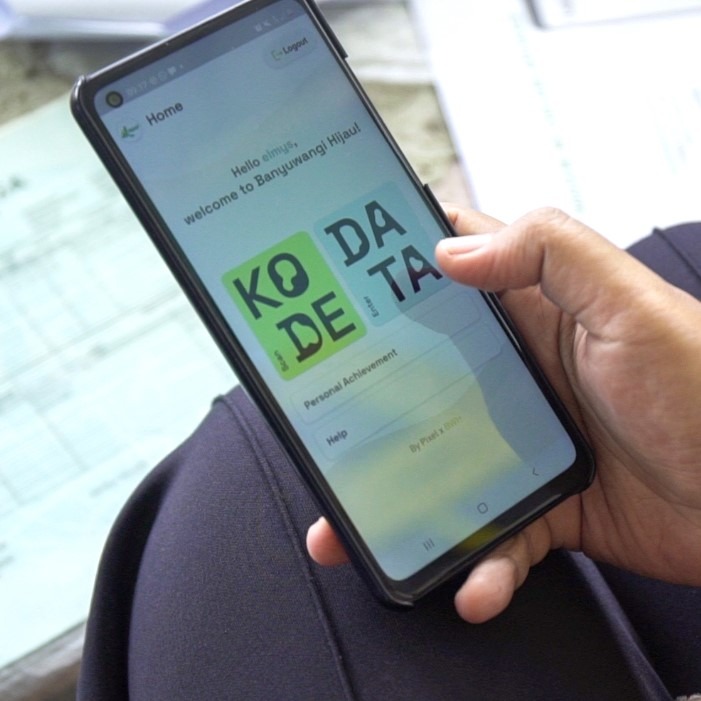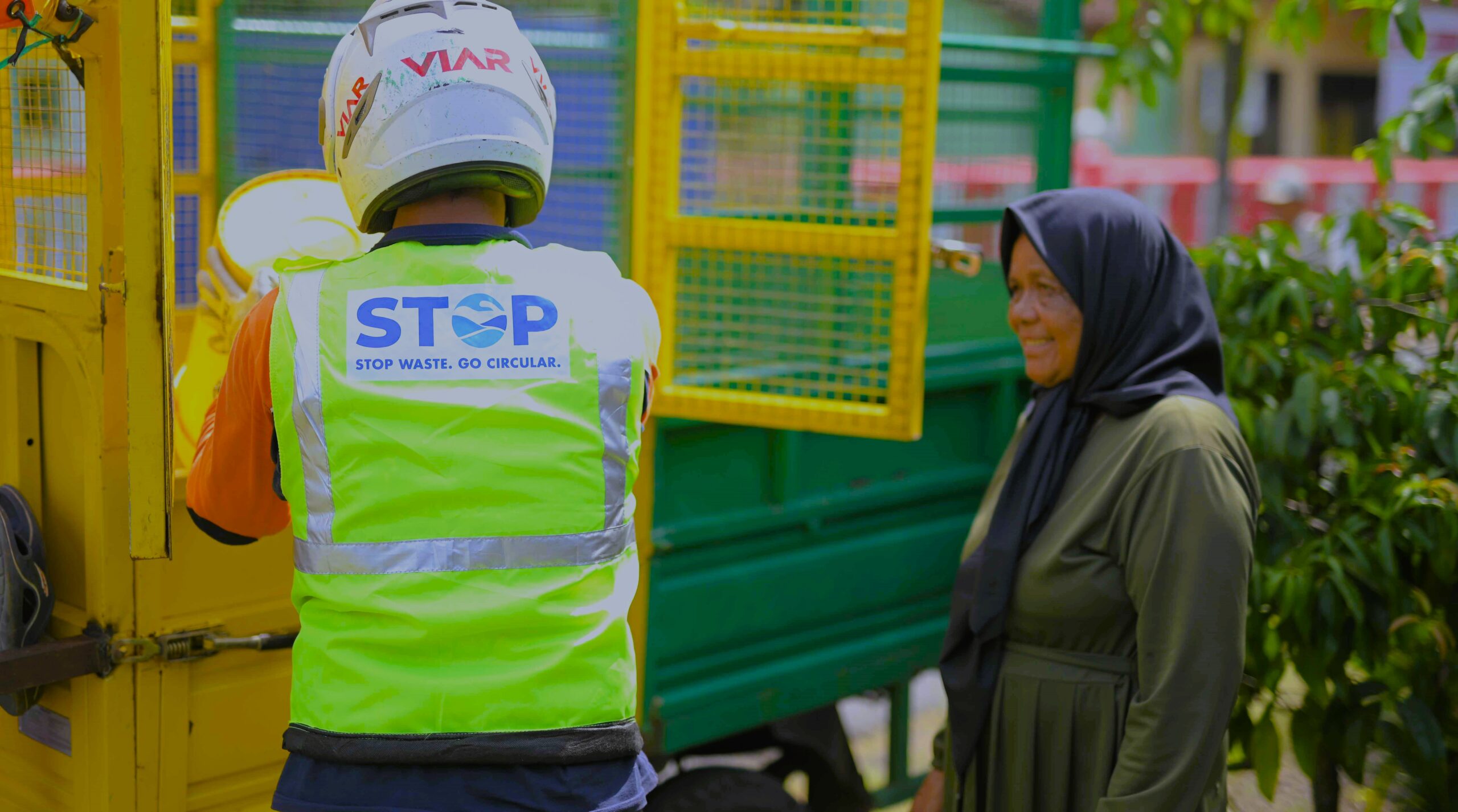The Project STOP Banyuwangi Hijau App helps to optimise waste management, from processing fees to finding the best collection route and improving material traceability.
Created in partnership with local governments and Accenture, the app is part of Project STOP’s mission to create comprehensive, economically sustainable waste management systems, at scale, in Southeast Asia.
The most effective, and generally cheapest, solutions for tackling plastic pollution focus on stopping plastic from entering rivers and the ocean in the first place. In 2017, the Indonesian government announced a bold commitment to reduce the country’s ocean plastic levels by 70%, and since then Project STOP – co-founded by Borealis and Systemiq – has connected more than 450,000 people to a waste management system.
What began as a number of city-level partnerships has grown into a large-scale programme, including Project STOP’s first regency-level waste management partnership in Banyuwangi, the largest regency in the Indonesian island of Java. Overall, Project STOP aims to positively impact the lives of up to 2 million people across all its city and regional partnerships, and harnessing technology is a key part of this ambitious scale-up plan.
The app was developed in collaboration with a team of digital innovators and technology experts from Accenture Song, Accenture’s tech powered creative group. “It’s a powerful example of how technology and systems thinking can drive transformational change”, explains Steven Sujoto, Systemiq’s Program Director for Project STOP Banyuwangi Hijau. “With this app and Project STOP’s system enabler approach, we are creating a replicable model for sustainable waste management that not only protects the environment but also benefits communities across Indonesia.”

Optimising waste management with digital solutions
The app will support Project STOP with rolling out effective household waste management systems to 377,000 people who currently have no access to a formal managed waste system, addressing the influx of waste into the environment and ocean by helping to stop it at source.
Thanks to the app’s data, waste collectors can now plan more efficient routes, reducing time and operational costs. Its map views can also help identify households who are not yet participating in the programme, allowing targeted outreach and better service coverage.
Residents can easily sign up – and use digital payments – for waste collection services. The app’s developers have tailored it for use in regions with limited internet access; it’s built for smaller screen sizes and cost-effective devices, making it accessible to waste management workers and communities in rural areas.
“We are grateful to have Accenture as a partner in Project STOP Banyuwangi Hijau,” says Markus Horcher, Director Sustainability & Public Affairs at Borealis. “This collaboration is a great example of how working together across sectors fosters the development of innovative solutions that create sustainable and long-lasting impact.”
Next steps for system-level change
Innovations like these can help to drive change at a greater scale. Having already collected nearly 75,000 tons of waste, and created over 275 local jobs since 2017, Project STOP is dedicated to creating a roadmap and an enabling environment for reaching Indonesia’s government targets, and to ensuring that every family in Indonesia has access to circular waste management. As well as technical solutions, Project STOP’s experts share their experiences and lessons, helping to inform policymakers and encourage them to adopt effective waste management policies. They also work on ways of financing a transition to a more circular plastics system; this includes collaborating with partners to develop a blended finance model that can make waste collection systems more attractive to development finance institutions and commercial investors.

